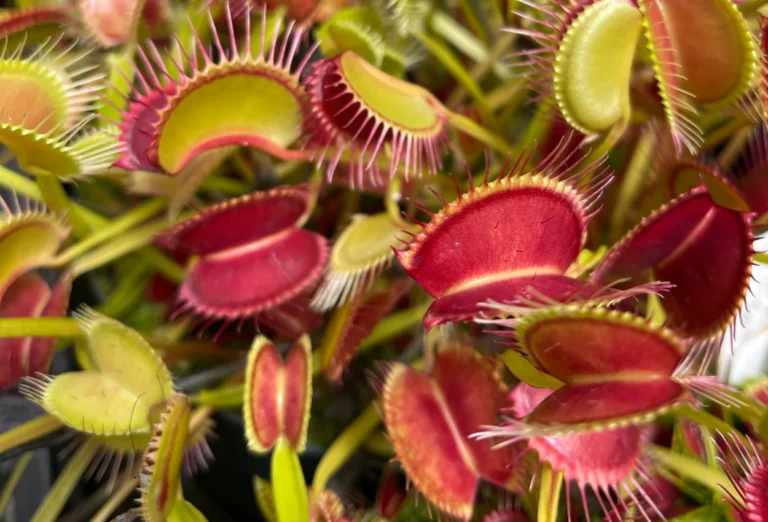In a world where the value of small things often goes unnoticed, bees play a vital role in maintaining the equilibrium of our ecosystem. These tiny creatures, often associated merely with the sweet nectar they produce, are in fact fundamental to our survival. Buzzing with life, they silently contribute to our planet’s biodiversity in a way that is indispensable and yet, surprisingly unacknowledged by many. This write-up delves into the incredible role bees play in sustaining life on Earth, opening the door to a world of fascinating insights and essential facts.
From pollinating approximately 70% of the crops that feed the human population to supporting the growth of trees, flowers, and other plants, bees contribute to complex, interconnected ecosystems that allow a diverse range of species to co-exist. In this exploration, we will walk through the multifaceted contributions of these diligent workers, and how their decline might impact us all.
In the face of environmental changes and the rapid decline in bee populations globally, understanding their importance is no longer a choice, but a necessity. The write-up further unravels the reasons behind this drastic decrease in bee numbers, and the initiatives we can take to protect these unsung heroes of our ecosystem.
Lastly, we will take a journey into the world of beekeeping, an age-old practice that not only benefits the environment but also provides a sustainable livelihood for many people across the globe. As we dive into the buzzing world of bees, the aim is to gain a newfound respect for these creatures and comprehend why their survival is synonymous with ours. Join us as we uncover the untold story of bees and their vital role in sustaining our planet.
Understanding Bees: The Pillars of Biodiversity
Bees, a vital component of biodiversity, hold an indispensable role in maintaining the ecological balance of our planet. These industrious insects are primary pollinators, facilitating the fertilization of flowers by transporting pollen grains from the male anther to the female stigma.
This transfer of pollen promotes the reproductive process in plants, leading to the formation of fruits, seeds, and new plant generations. In fact, it is estimated that one-third of the world’s food supply is dependent on the pollination carried out by bees.
The Intricate Process of Pollination
The efficiency of bees as pollinators can be attributed to their biological features and foraging behavior. Equipped with hairs and electrostatic charge, bees can easily collect and disperse pollen grains. Furthermore, they exhibit a phenomenon called flower fidelity, wherein they continuously visit the same type of flower during a forage, enhancing the chances of successful pollination.
Bees and Ecosystem Services
Beyond their contribution to biodiversity, bees offer a wide array of ecosystem services, which are the benefits that humans obtain from ecosystems. These services fall into three categories: provisioning services, regulating services, and cultural services.
Provisioning Services
Bees contribute to provisioning services through their role in food production. They assist in the pollination of a multitude of crops, including fruits, vegetables, nuts, and seeds, which constitute a significant portion of global food supplies. Moreover, they produce honey, propolis, royal jelly, and beeswax, which have both nutritional and commercial value.
Regulating Services
Bees also play a part in regulating services by improving the quality of crops. Through pollination, they not only increase the quantity of crops but also enhance their nutritional value and taste. Moreover, bees can boost the resistance of plants to pests and diseases, contributing to sustainable farming practices.
Cultural Services
Bees are integral to cultural services, providing aesthetic, educational, and spiritual benefits. They inspire scientific research, technological innovation, and artistic creations. Additionally, bees and beekeeping have a symbolic significance in many cultures worldwide.
Threats to Bees and the Consequent Implications
Despite their critical role in our ecosystems, bees are facing numerous threats, ranging from habitat loss and climate change to pesticide exposure and diseases. The decline in bee populations has far-reaching implications for biodiversity, food security, and human livelihoods.
Impact on Biodiversity
Bees are keystone species in various ecosystems, and their decline can disrupt the ecological balance. A reduction in bee populations can lead to decreased pollination, affecting plant reproduction and the survival of other species that depend on these plants for food and habitat.
Impact on Food Security
Bees play an essential role in food production, and their decline could jeopardize global food security. As primary pollinators of many crops, bees contribute to the quantity and quality of food. Thus, a decrease in their numbers could result in lower crop yields and higher food prices.
Impact on Livelihoods
The decline of bees can also affect human livelihoods, particularly those dependent on bee-related products and services. This includes farmers, beekeepers, and industries such as food and beverage, cosmetics, and pharmaceuticals that rely on bee products.
Steps Towards Bee Conservation
Given the importance of bees and the threats they face, concerted efforts are required for their conservation. This includes habitat restoration, sustainable farming practices, and increased research and awareness.
Habitat Restoration
Restoring and preserving bee habitats can help boost their populations. This involves creating a diversity of flowering plants, providing nesting sites, and maintaining pesticide-free areas.
Sustainable Farming Practices
Adopting sustainable farming practices can mitigate the impacts of agriculture on bees. This includes the use of integrated pest management strategies, crop rotation, and organic farming methods.
Research and Awareness
Increased research is needed to understand the factors affecting bee populations and devise effective conservation strategies. Raising awareness about the importance of bees and their threats can also encourage public participation in conservation efforts.
The Fascinating World of Beekeeping: A Tradition and a Solution
Beekeeping, or apiculture, is not only an age-old practice rooted in ancient civilizations but also a modern solution to environmental and economic challenges. This harmonious interaction between humans and bees provides a mutually beneficial relationship — while we offer protection and support to bees, they, in turn, sustain agricultural ecosystems and supply valuable products.
Historically, evidence of beekeeping dates back over 4,000 years to ancient Egypt, where honey was highly prized for its taste, medicinal properties, and even religious rituals. In medieval Europe, honey and beeswax were essential commodities. Today, beekeeping continues to evolve, incorporating advanced technologies and sustainable practices to enhance hive health and productivity.
Modern beekeepers do more than harvest honey. They monitor hive conditions, provide supplemental feeding during harsh seasons, treat diseases, and relocate hives when necessary. This care helps maintain strong pollinator populations, especially in agricultural zones that rely on commercial pollination.
Beekeeping also promotes biodiversity. When managed responsibly, apiaries can become safe havens for native plants and other pollinators, especially when surrounded by flowering vegetation and free from pesticides. Additionally, urban beekeeping is gaining popularity, transforming city rooftops and community gardens into buzzing oases of biodiversity.
Medicinal and Economic Value of Bee Products
Beyond honey, bees produce a variety of substances with powerful medicinal and commercial applications. Each product of the hive plays a unique role in human health and industry.
Honey
Honey is more than a natural sweetener. It possesses antibacterial, anti-inflammatory, and antioxidant properties, making it a staple in traditional and modern medicine alike. It’s used to treat sore throats, support digestion, heal wounds, and enhance skin health. Manuka honey, in particular, is renowned for its potent antimicrobial effects.
Propolis
Propolis is a resinous mixture that bees collect from tree buds and use to seal their hives. Rich in bioactive compounds, it has strong antiseptic and antifungal properties. In health care, it’s used in lozenges, ointments, and natural remedies to treat infections and strengthen immunity.
Royal Jelly
Royal jelly is the exclusive diet of queen bees and is known for its high nutritional content. It contains proteins, vitamins, and hormones that may support reproductive health, enhance skin vitality, and improve energy levels. Its use in dietary supplements and cosmetics is widespread. In traditional medicine, royal jelly has been praised for its ability to boost immunity, reduce inflammation, and slow signs of aging. Although more research is needed to confirm all of its effects, royal jelly continues to be a prized natural remedy across various cultures and health traditions.
Beeswax
Beeswax is a natural wax used in candles, balms, lotions, food wraps, and polishes. Its clean burn and pliability make it a sustainable alternative to synthetic materials. Artisans and eco-conscious consumers increasingly seek beeswax products as part of a zero-waste lifestyle.
Pollination Services as Economic Drivers
The economic value of pollination is immense. In the United States alone, pollinators contribute more than $15 billion to crop production annually. Crops such as almonds, apples, blueberries, and cucumbers rely heavily on bee pollination for yield and quality. Without bees, the costs of hand-pollination or reduced harvests would dramatically increase food prices and threaten global supply chains.
How Climate Change Disrupts Bee Behavior
Climate change is one of the most insidious threats to bee populations. As temperatures rise and weather patterns become more erratic, bees face an increasing number of challenges that compromise their survival and performance.
One key issue is the mismatch in flowering times and bee activity. As spring arrives earlier in some regions, plants may bloom before bees emerge from hibernation. This mismatch reduces the availability of nectar and pollen, leaving bees undernourished and plants under-pollinated.
Extreme weather events — such as heatwaves, floods, and droughts — can also destroy bee habitats, reduce flower abundance, and stress colonies. Warmer winters can confuse bees into foraging when food is scarce, weakening hives and increasing disease susceptibility.
Additionally, climate change is expanding the range of pests and pathogens. For example, the Varroa destructor mite, one of the most destructive parasites to honeybees, thrives in warmer climates. As its territory expands, more colonies are at risk.
Adaptation strategies — like breeding climate-resilient bee species, preserving diverse habitats, and reducing greenhouse gas emissions — are urgently needed to protect pollinators in a rapidly changing world.
Simple Ways You Can Help Bees Thrive
Whether you live in the countryside, a city, or a small apartment, you can make a difference for bees. Here are actionable steps that anyone can take:
Plant a Pollinator-Friendly Garden
Grow a variety of native plants that bloom at different times of the year. Include nectar-rich flowers such as lavender, marigolds, echinacea, clover, sunflowers, and bee balm. Avoid using chemical fertilizers or pesticides, and prioritize biodiversity over ornamental perfection.
Create Safe Water Sources
Bees need water for hydration, hive cooling, and feeding larvae. You can provide a shallow water dish with stones or floating corks for bees to land on safely.
Support Organic and Local Farms
Organic farming avoids synthetic pesticides and supports healthier ecosystems. Buying local produce from sustainable farms not only reduces your carbon footprint but also encourages environmentally conscious agriculture.
Avoid Pesticides and Herbicides
Even small amounts of neonicotinoids and other systemic chemicals can disorient and kill bees. Opt for natural pest control methods, companion planting, and integrated pest management to protect your garden and pollinators.
Become a Citizen Scientist
Join pollinator monitoring projects in your region. Reporting bee sightings and behavior helps researchers gather vital data and raise awareness about local pollinator health.
Educate Others
Share your knowledge with friends, family, and community members. Host workshops, plant native flower beds in schools or parks, and advocate for bee-friendly public policies in your city.
Conclusão
In conclusion, the critical role that bees play in maintaining the balance of our planet cannot be underestimated. These buzzing creatures are vital to the biodiversity and prosperity of ecosystems, enhancing plant reproduction through their diligent pollination efforts. Their importance extends to the global food supply chain, as they are responsible for pollinating a significant proportion of the crops that feed the world. Unfortunately, bees are under severe threat due to climate change, habitat loss, and the widespread use of pesticides. The decrease in bee populations is a pressing concern that warrants immediate attention. Conservation initiatives, sustainable agricultural practices, and increased public awareness are instrumental in safeguarding the survival of these essential pollinators. In essence, bees are not just buzzing with life but are the lifeblood of our planet, and their survival intertwines with ours. Let’s remember, a world without bees could mean a world without us. 🐝💛🌍



